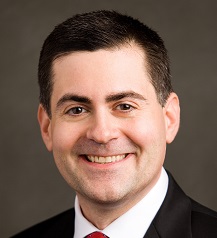By Bob Allen
The Southern Baptist Convention’s top spokesman for religious liberty says conservative Christians should reclaim the phrase “separation of church and state” in order to avoid government overreach in matters of faith.
 Russell Moore, president of the SBC Ethics and Religious Liberty Commission, said in a recent panel discussion on religious freedom reported by Baptist Press that conservatives “long ago tossed overboard” a phrase largely co-opted by the left to describe a religion-free public square.
Russell Moore, president of the SBC Ethics and Religious Liberty Commission, said in a recent panel discussion on religious freedom reported by Baptist Press that conservatives “long ago tossed overboard” a phrase largely co-opted by the left to describe a religion-free public square.
Moore, a former seminary professor who last year took over as head of the public-policy arm of the nation’s second-largest faith group behind Roman Catholics, said that understood correctly, the separation of church and state “does not mean secularization” but instead that “the state is limited and does not have lordship over the conscience.”
Participating in an “evangelical leadership summit” sponsored by American Enterprise Institute, a neo-conservative think tank influential in the second Bush administration, Moore said Christians should care about a city council zoning a mosque out of existence not because they agree with Islam, but because a government with power to drive out one faith over time could use the same power to drive out all others as well.
The phrase “separation of church and state” entered the American political lexicon in an 1802 letter from Thomas Jefferson to Baptists in Danbury, Conn., explaining the intent of the First Amendment as “building a wall of separation between church and state.”
In Baptist tradition the concept goes back even further. Roger Williams, who founded the first American Baptist church in Providence, R.I., after being banished by Puritans from the Massachusetts Bay Colony in 1635, spoke of a “hedge or wall of separation between the garden of the church and the wilderness of the world.”
Thomas Helwys, co-founder of the first Baptist church in Amsterdam, Holland, died in prison after arguing: “The King is a mortal man, and not God, therefore he hath no power over the mortal soul of his subjects to make laws and ordinances for them and to set spiritual Lords over them.”
Historians consider the high-water mark of the 20th-century Baptist witness for religious liberty a 1920 speech delivered on the steps of the U.S. Capitol by George W. Truett, the venerable pastor of First Baptist Church in Dallas.
In an hour-and-15-minute sermon without notes or microphone, Truett cited the utterance of Jesus, “Render therefore unto Caesar the things which are Caesar’s, and unto God the things that are God’s” and proclaimed those words “once and for all, marked the divorcement of church and state.”
Truett called it “pre-eminently a Baptist achievement” that language was written into the U.S. Constitution to guarantee “that church and state must in this land be forever separate and free, that neither must ever trespass upon the distinctive functions of the other.”
For some Baptists the mood changed after the Supreme Court declared teacher-led school prayer and Bible reading unconstitutional in the 1960s. With the rise of the Religious Right in 1984, Truett’s successor at First Baptist, Dallas, W.A. Criswell, famously dismissed the notion of separation of church and state as “the figment of some infidel’s imagination.”
Moore’s predecessor at the ERLC, Richard Land, considered influential with the Religious Right, advocated an “accommodationist” understanding of church-state separation.
That means the government should accommodate public expressions of religion like student-led prayer in public schools and privately funded religious displays such as the Ten Commandments on a courthouse lawn.
That is opposed to a strict “separationist” understanding — advocated by groups including Americans United for Separation of State — that there should be a high wall of separation between church and state in order to safeguard against the government endorsement of religion.
Moore said he believes the present danger posed by the loss of religious freedom is not a “purely secular state” but “a more religious state … that is dictating religious terms.”
“If you give to the government the ability to differentiate between what religious convictions are really and truly important or not, then we will wind up with a state-established religion in which the government says a vague concept of the divine is all that really matters,” he warned. “And all of your particularities can simply be wiped away like a building being plowed away by eminent domain in order to build a new business.”
